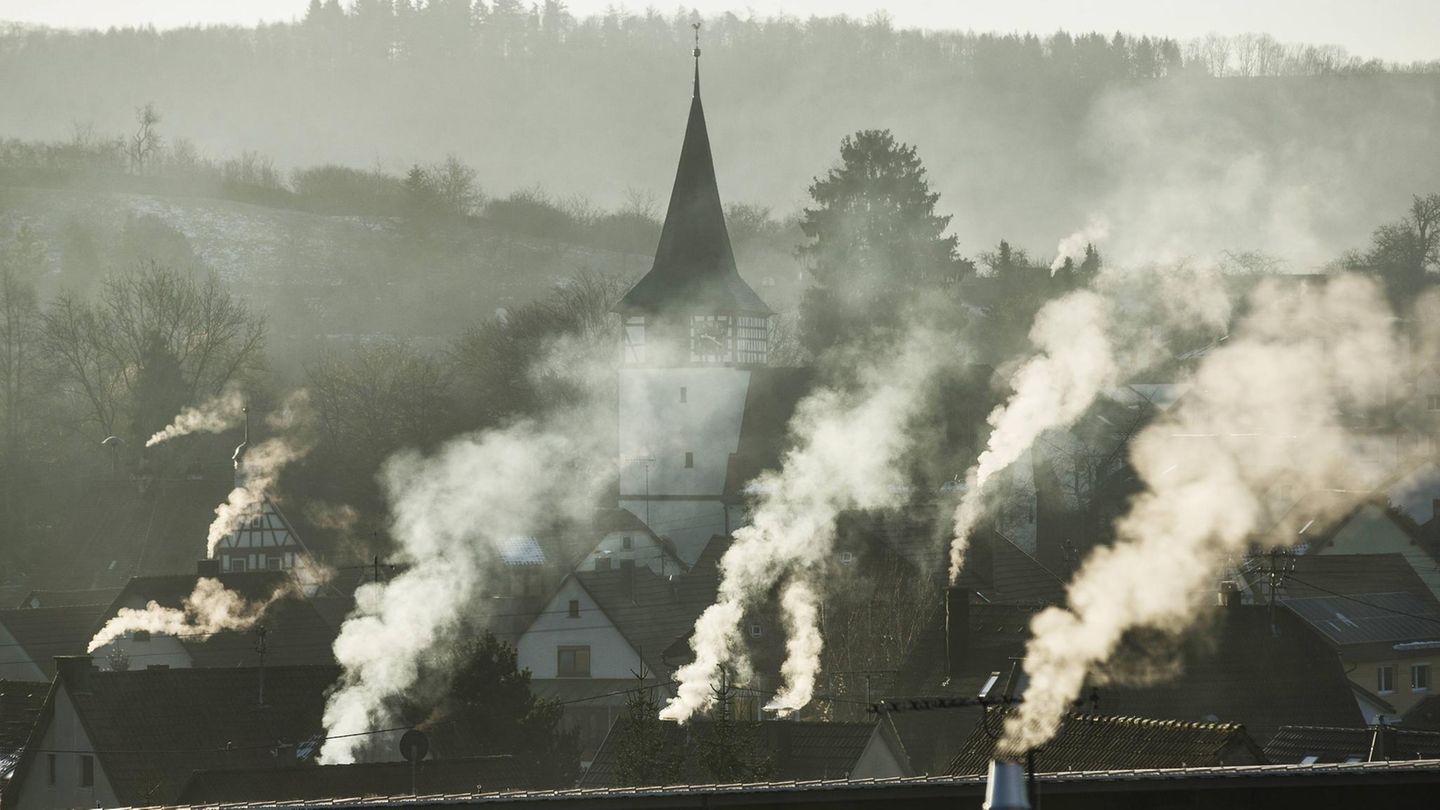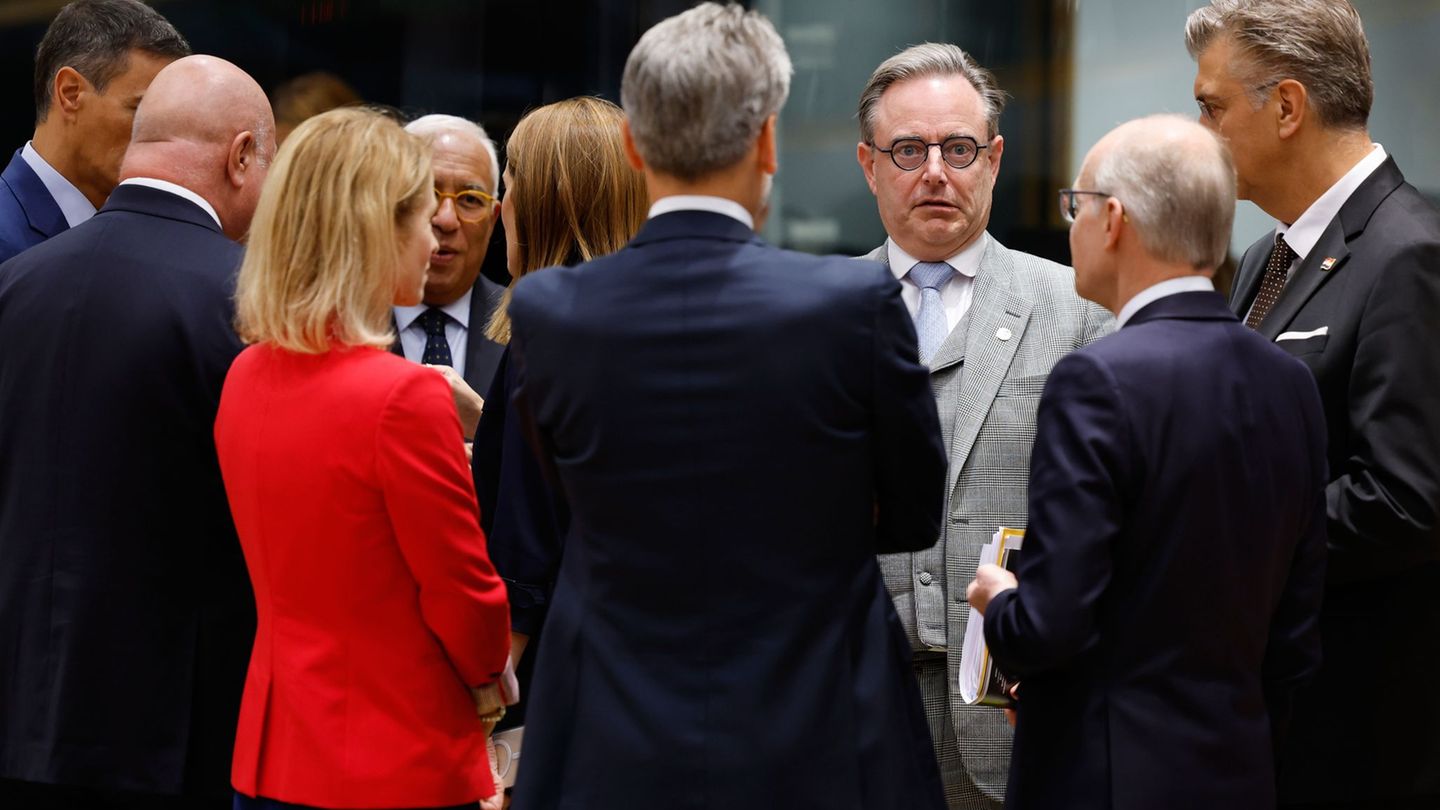Ukrainian war
What do the new Russia sanctions mean for energy prices?
Copy the current link
Add to watchlist
The EU states have reached an agreement: from 2027 they will no longer buy liquefied natural gas from Russia. But what does this mean for consumers with gas heating? Is heating becoming more expensive?
From 2027, liquid natural gas from Russia will no longer be allowed to be imported into the EU. The EU states decided this as part of a new package of sanctions against Moscow. How exactly is this supposed to work and what consequences can be expected for citizens in Germany?
What does the import ban mean for people in Germany?
According to the Federal Association of the Energy and Water Industry, it is difficult to estimate what price effects the import ban will have for end consumers. This depends on a number of factors, says Managing Director Kerstin Andreae.
On the one hand, increased demand from European importers for non-Russian gas could increase prices on the world market. On the other hand, a whole series of new LNG export projects are already being planned and under construction, for example in the USA, but also in Qatar. “This will then increase the supply on the world market and negative price effects would probably not occur.”
Timm Kehler, board member of the Gas and Hydrogen Industry Association, said it is important that reliable replacement strategies are created. Long-term supply contracts, the expansion of the LNG import infrastructure and the elimination of legal requirements, for example when importing from the USA, are needed. “Without such measures, there is a risk of price increases and greater market volatility.”
Are German companies affected by the import ban?
Yes, the federally owned German energy company Sefe is affected by the import ban. It continues to import liquefied natural gas from Russia into the EU on the basis of an existing, long-term contract. The company was formerly called Gazprom Germania, was a subsidiary of the Russian state-owned company Gazprom and was nationalized as a result of the Russian war of aggression on Ukraine and the energy crisis in Germany.
When asked, a Sefe spokeswoman said: “Now that the schedule for the import ban has been defined, we can carry out a well-founded assessment of the effects.” This analysis is currently in progress. However, the portfolio has been actively diversified over the past three years in order to be prepared for a possible end to Russian LNG imports.
How and when should imports be banned?
In order to reduce Russia’s revenue from the sale of liquefied natural gas (LNG), a complete import ban will apply from 2027. This is a year earlier than originally planned.
In June, the EU Commission initially proposed a regulation that would ban all Russian gas imports from 2028. The regulation is currently being negotiated by EU countries and the European Parliament. The regulation should also be passed despite the sanctions that have now been decided: the import ban should continue to apply if sanctions are lifted again.
Twelve tips on how you can reduce your energy costs as a tenant

Invest in the renovation yourself
If you as a tenant want to implement major renovation measures, such as installing new windows, sit down with your landlord and talk about possible compensatory measures. In certain cases it may be worthwhile to invest in your rental apartment or house yourself. It would be conceivable, for example, to negotiate an agreement with the landlord that you would bear the costs yourself and in return the landlord would waive a rent increase in the coming years. All measures should be clearly recorded in the contract.
© Getty Images
More
Open caption
Back
Further
Why is oil and gas still being imported into Europe from Russia?
Until the beginning of the Russian war of aggression against Ukraine, energy supplies in Germany and many other EU states were largely secured with the help of cheap oil and gas from Russia. The change takes time – especially because the aim is to avoid having too large an impact on consumer energy prices. As a result of the war of aggression, the EU issued extensive import bans on Russian energy sources such as coal and oil, although there are still exceptions. However, there have been no gas sanctions so far because of the dependencies.
How dependent is the EU currently on Russian energy supplies?
According to an overview by the Brussels think tank Bruegel, 4.7 billion cubic meters of Russian natural gas came to the EU via the Turkstream pipeline between July and September, as well as around 3.5 billion cubic meters of liquefied natural gas. This means that Russian gas accounted for around 10 percent of all gas imports into the EU in the third quarter.
In 2024, gas deliveries from Russia accounted for around 19 percent of all imports. According to the EU statistics agency Eurostat, natural and processed gas worth 15.6 billion euros was imported from Russia last year. For comparison: gas worth 19.1 billion euros came from the USA.
According to the Gas and Hydrogen Industry Association, reliable statements about how much Russian gas actually ends up in Germany are currently not possible. “The origin can hardly be clearly determined at the national level, since gas – whether via pipeline or LNG – is transported in the European network and traded between countries,” says board member Kehler.
DPA
lpb
Source: Stern




